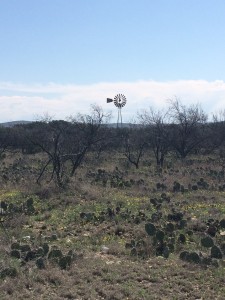Question: If someone is bitten by a snake on my land, can I be held liable?
This is a great question and as I was working on this blog post, I came across a great quote in a Texas appellate court opinion that sort of summarizes this issue: “A good deal of the vegetation in Texas stings, sticks or stinks. Any number of insects and animals can hurt or even kill you.”
Answer: Although liability is unlikely, it is possible under certain circumstances.
As you may recall from this prior blog post, when a person is injured on the property of another, the injured party makes either a premises liability claim or a negligent act claim. If a person is bitten by a snake (or other wild animal like wasps or ants), this falls under the realm of a premises liability claim. The initial inquiry in any premises liability case is whether a duty exists between the plaintiff and defendant and whether the defendant breached that duty.
With regard to wild animals, Texas appellate courts have explained the duty owed by a landowner. “Under ordinary circumstances, Texas landowners do not have a duty to warn their guests about the presence and behavior patterns of every species of indigenous wild animals and plants which pose a potential threat to a person’s safety, as well as the extent of that threat. If a landowner was required to affirmatively disclose all risks caused by plants, animals, and insects on his or her own property, the burden on the landowner would border on establishing an absolute liability.”
Now, importantly, courts have made clear that this is not an absolute rule–there could be exceptions under certain circumstances. For example, a landowner may be held liable for acts of wild animals if the landowner has reduced the animal to his or her possession and control, or introduced a non-indigenous animal into the area. Further, if wild animals were found in artificial structures or places where they are not normally found like stores or motel rooms, the landowner could be liable.
Most Texas courts considering this issue have found that a landowner owed no duty, even to an invitee, with regard to the acts of wild animals on the premises. Thus, even though courts agree that a duty could apply under the right factual circumstances, very few courts have actually confronted such circumstances and imposed such a duty.
In conclusion, the leading Texas case on this issue offers a good example of how this rule is applied. The plaintiff in Nicholson v. Smith filed suit against an RV park owner after the plaintiff was attacked by fire ants. The landowner knew that the ants existed and had repeatedly tried to kill the ants. The court found, however, that because the ants were indigenous animals to the area, because they were not an in artificial location and because the landowner did not reduce them to his possession, the landowner owed no duty to the plaintiff under these facts. Thus, the landowner could not be held liable.













